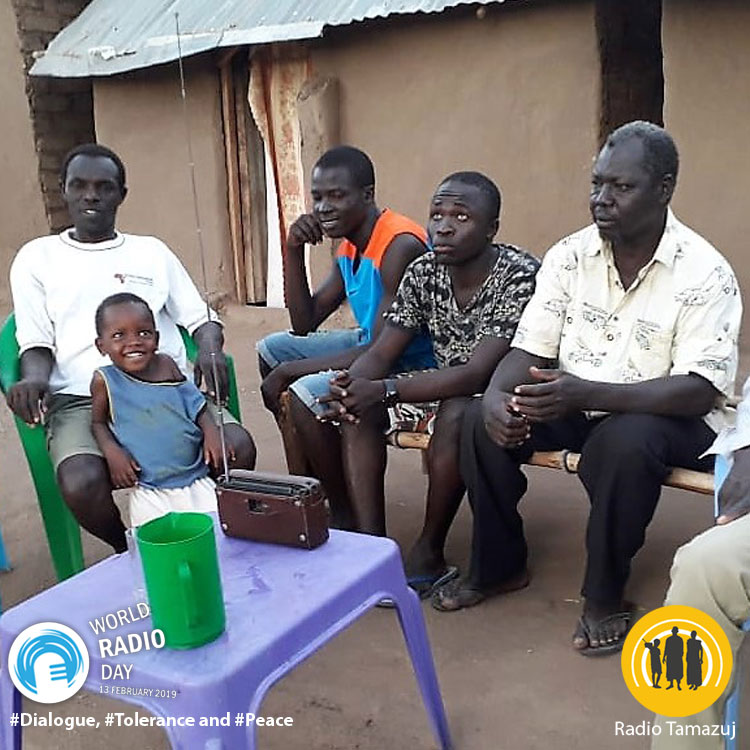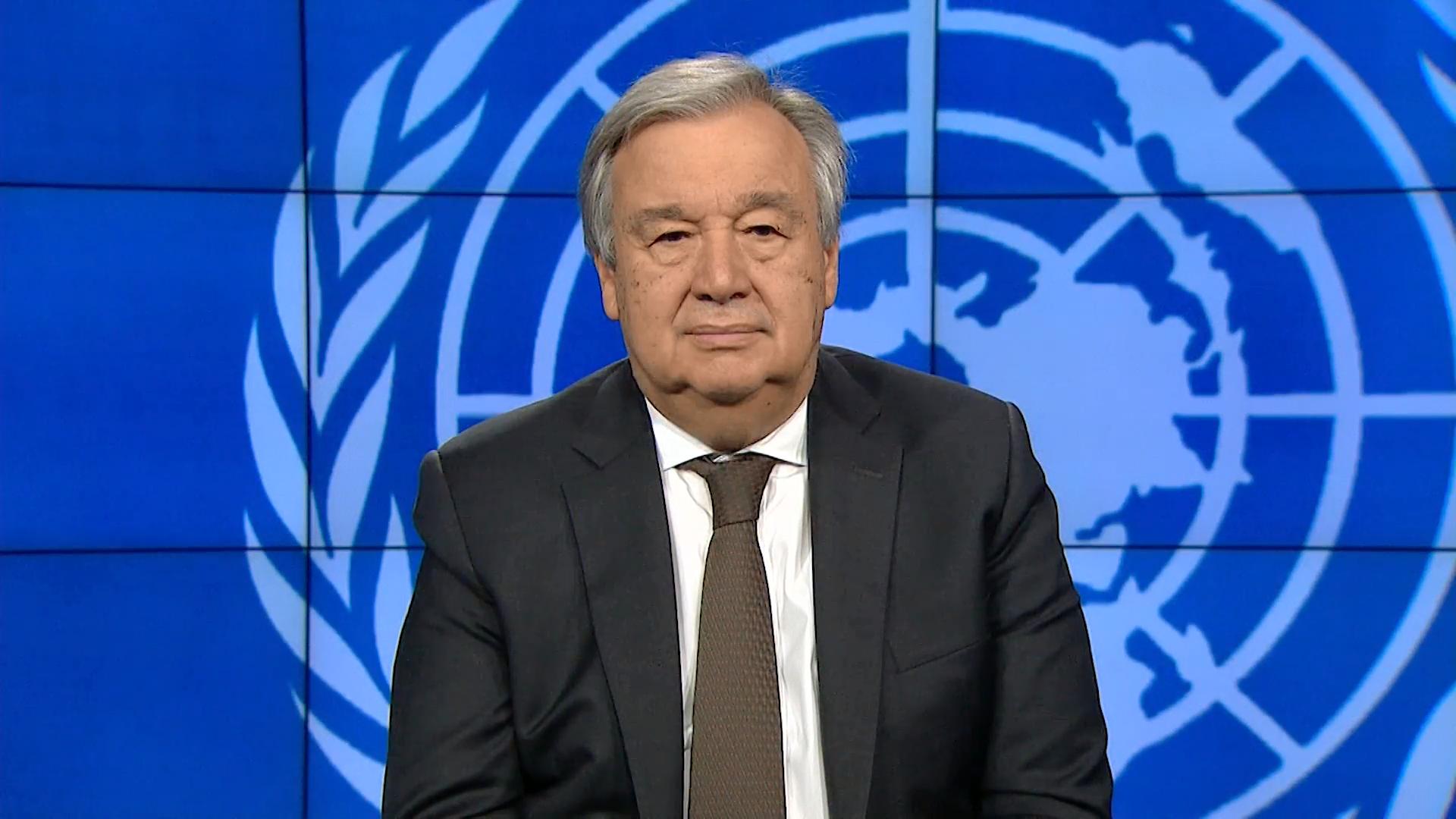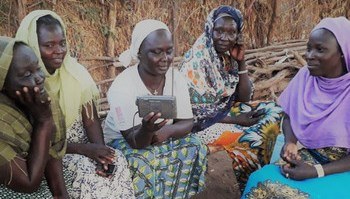To mark World Radio Day on February 13, Radio Tamazuj asked South Sudanese citizens from diverse backgrounds about the role radio plays in their lives, especially in view of the country’s peace process and dialogue.
Under the theme “Dialogue, Tolerance and Peace,” this year’s celebration underscores the medium’s ability to encourage understanding and foster new perspectives.
Gisma Juma, who works for the non-profit Community Empowerment for Progress Organization (CEPO), said radio is a very important communication tool for communities in South Sudan due to high illiteracy rates.
“Radio can disseminate messages easily and majority of the South Sudanese people listen to radio. We can use the radio when we are doing programmes on development, peace and learning. Radio is the best communication tool that can reach our people because we do not have electricity,” she said.
Gisma urged South Sudan communities to use the radio as a platform to learn, love and send peace messages to promote unity among the people of South Sudan.
Adding her voice, Rahma Farajallah, chief of Nimra Talata and Hai Neem neighbourhoods in Juba, said radio is a very important tool of communication. Through radio, she said, they get information and informative programmes.
“When the peace agreement was signed in September last year, everyone was holding his or her own radio to receive the news of peace in South Sudan,” she said.
But Rahma also acknowledged that most of the people displaced by the conflict do not have access to radios. She appealed to radio stations to maintain accuracy and objectivity in their reporting saying people depend on that information.
“Accuracy is also very important. Radio gives us important information about the peace process,” she said.
Alfred Taban, a veteran journalist and now a member of the national legislative assembly also added his voice to underscore the importance of radio.
"Radio plays a major role in bringing peace to communities, because communication is easier through radio," he said.
Sebit Juma Surur, a government employee in Juba, said radio is very important hi his life. “Everyone including the poor people can have radios because it is affordable. Radio has advantages and disadvantages but it has more advantages than disadvantages. When the conflict erupted in 2013 and 2016, people received information through radio because there is no electricity in our country,” he said.
“Majority of the South Sudanese people during the conflict were relying on the radio. But many FM radio stations during the conflict were just playing music as if nothing was happening,” he added.
“Through the radio, we can broadcast programmes on our culture and our love to one another. Through radio, we can tell the world that we are not warmongers and preachers of hate. We need programmes on civic education and health instead of playing music always.”
According to the United Nations, the violent conflict in the country has displaced more than four million people, either within the country or across the border. Nearly 200,000 are currently sheltering in PoC sites at six UNMISS bases nationwide.
We spoke to some South Sudanese refugees and internally displaced persons and they have added their voice.
David Dak, a displaced person sheltering in the UN PoC in Malakal, says they hear what is happening around the country from the radio. “Radio can help bring reconciliation among people. For me, before I travel, I have to listen to the radio so that I can know what is going on,” he said.
 “Radio has given us awareness on peace, it updates us always on all the processes of peace and how things are going. It is very important that we know what is going on,” said Marina Gabriel, a displaced woman at the Malakal PoC.
“Radio has given us awareness on peace, it updates us always on all the processes of peace and how things are going. It is very important that we know what is going on,” said Marina Gabriel, a displaced woman at the Malakal PoC.
Across the border in Ethiopia, South Sudanese refugee Gabriel Chieng Tot said radio is a medium of communication between the government and the citizens.
“The main role of radio is to inform us of news from the government and from the communities. The radio has a big role to bring peace and good relations. It is a source of communication. Now I am speaking on the radio, my relatives can now know where I am. The radio tells us what is happening in the peace process, what people need and what is missing,” he said.
Chol Biar, a refugee in Kakuma camp in Kenya, said radio has key role in promoting peaceful coexistence among the different communities.
“We the refugees can only have a link with our people back in the country through the radio. We want to unite ourselves through messages passed on radios,” he said.
In his message on the occasion of World Radio Day, the United Nations Secretary General António Guterres, said: “Even in today’s world of digital communications, radio reaches more people than any other media platform.”
He further said radio conveys vital information and raises awareness on important issues.
Radio is a platform where people can air their views, concerns, and grievances, according to Guterres.
“For the United Nations, especially our peacekeeping operations, radio is a vital way of informing, reuniting and empowering people affected by war,” said Guterres.
“On this World Radio Day, let us recognize the power of radio to promote dialogue, tolerance and peace,” he stressed.

Photo: UN Secretary General António Guterres




